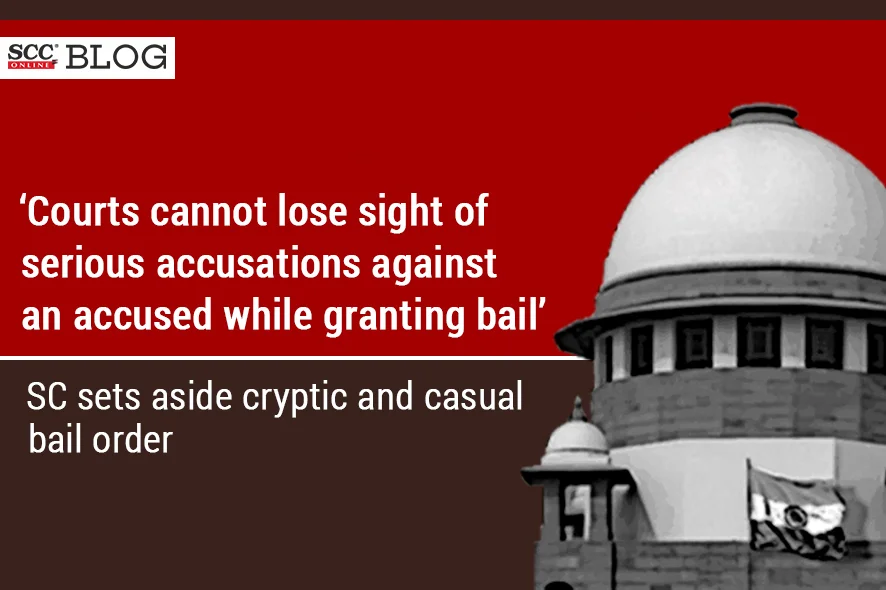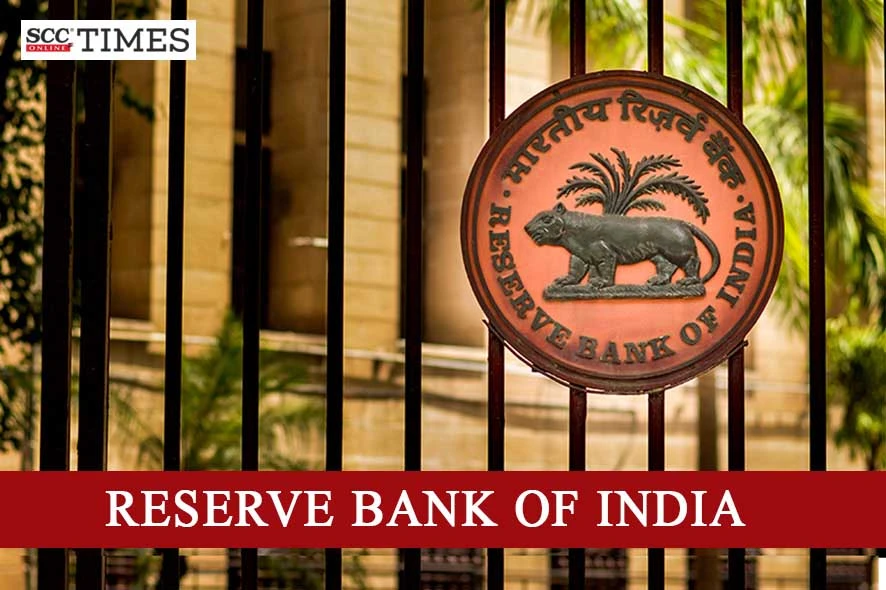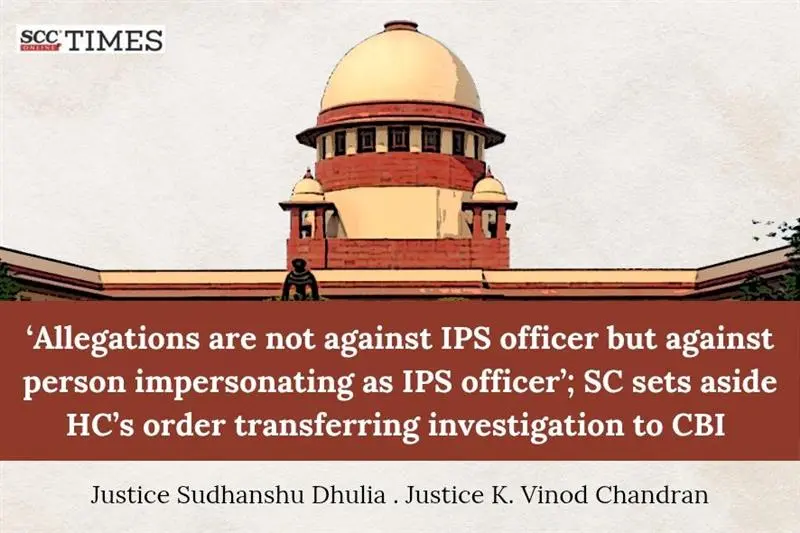Supreme Court: In a batch of civil appeals against the Order of Rajasthan High Court wherein bail was granted to the accused persons for offences punishable under Section 302 read with Section 34 of the Penal Code, 1860 (‘IPC’) and Section 3 read with Sections 25 and 27 of the Arms Act, 1959, the Division Bench of B.V. Nagarathna* and Prashant Kumar Mishra, JJ., found that the High Court not right in granting bail to the accused persons and viewed that the High Court had lost sight of the vital aspects of the case.
In the matter at hand, a First Information Report (‘FIR’) was registered by the brother of the deceased (‘appellant’) against the accused persons for the said offences. It was stated by the appellant in the FIR that the deceased was in an extra marital live-in-relationship with the daughter-in-law/wife of the accused persons and that the accused persons were unhappy about the said extra marital live-in-relationship. It was also stated that they were threatening to kill the deceased. It was alleged that the accused persons had dragged the deceased from the market and shot him, causing his death.
The accused persons had preferred their respective bail application before the High Court, whereby they were granted bail, thus forming the impugned orders. Hence, the present appeals were preferred by the appellant.
The Court referred to several authorities wherein it was ruled that an order granting bail in a mechanical manner, without recording reasons, would suffer from the vice of non-application of mind, rendering it illegal. The Court also referred to Manoj Kumar Khokhar v. State of Rajasthan, (2022) 3 SCC 501, wherein it was held that an order granting bail to an accused, if passed in a casual and cryptic manner, de hors reasoning which would validate the grant of bail, is liable to be set aside by the Court while exercising power under Article 136 of the Constitution of India.
Further, the Court referred to the Latin maxim “cessante ratione legis cessat ipsa lex” which means “reason is the soul of the law, and when the reason of any particular law ceases, so does the law itself.”
The Court perused the part of the impugned order containing the reasoning of the High Court while granting bail. The Court said that it is not necessary for a Court to assign elaborate reasons or engage in a roving inquiry as to the merits of the prosecution’s case while granting bail, particularly, when the trial is at the initial stages and the allegations against the accused were not crystalised as such. It was also added that the Courts while deciding a bail application cannot completely divorce its decision from material aspects of the case such as the allegations made against the accused; severity of the punishment if the allegations are proved beyond reasonable doubt and would result in a conviction; reasonable apprehension of the witnesses being influenced by the accused; tampering with the evidence; criminal antecedents of the accused; and a prima-facie satisfaction of the Court in support of the charge against the accused.
The Court stated that the fact that liberty of an individual is an invaluable right, however, the Courts cannot lose sight of the serious nature of the accusations against an accused and the facts that have a bearing on the case, particularly, when the accusations may not be false, frivolous or vexatious in nature but are supported by adequate material brought on record so as to enable a Court to arrive at a prima facie conclusion. The Court also said that due consideration must be given to the facts which are suggestive of the nature of crime, the criminal antecedents of the accused, if any, and the nature of punishment that would follow a conviction vis-à-vis the offences alleged against an accused.
Considering the facts of the case and perusing the charge sheet, the Court said that the accusations against the accused persons were not prima-facie wholly false, frivolous or vexatious in nature, so as to justify the grant of bail. Thus, the Court observed without expressing anything on the merits of the case that the prosecution had brought on record adequate material that would prima-facie point towards the guilt of the accused.
Therefore, the Court viewed that the High Court did not consider even a single material aspect of the case, instead, the High Court referred only to the testimony of one hostile witness in the trial and exercised its discretion to grant bail in an erroneous manner. The Court also viewed that the High Court had lost sight of the vital aspects of the case and granted bail to the accused persons by passing very cryptic and casual orders, de hors cogent reasoning. Thus, the Court allowed the appeals and found that the High Court was not right in granting bail to the accused persons. The Court directed the accused persons to surrender before the Jail authorities within the period of two weeks from the date of the order.
[Rohit Bishnoi v. State of Rajasthan, 2023 SCC OnLine SC 870, Decided on 24-07-2023]
*Judgment Authored by: Justice B.V. Nagarathna
Advocates who appeared in this case :
For the Appellant: Advocate Rajan Chawla










